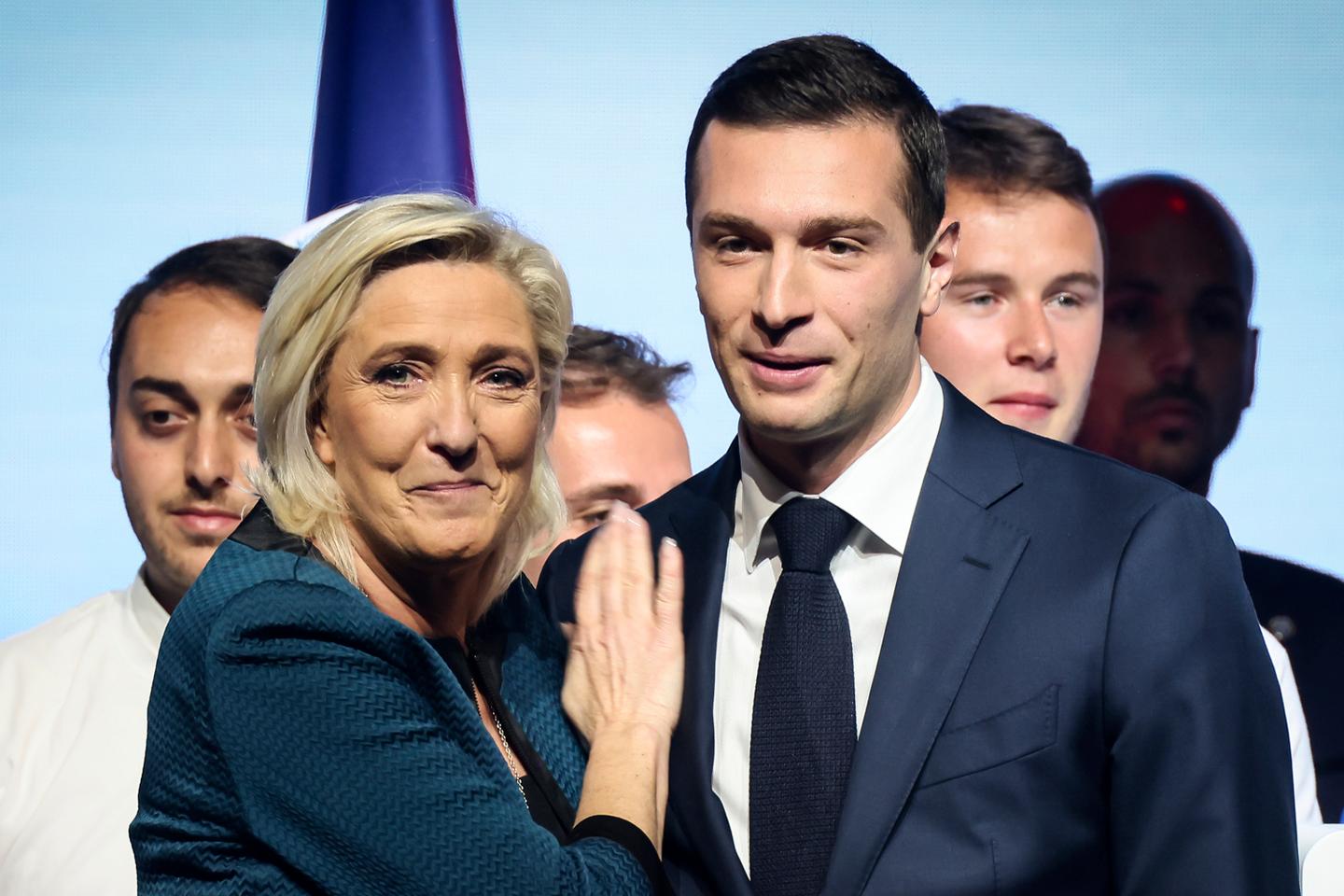


The strength of the far-right wave on Sunday, June 30, represents the most significant factor in the first round of France's snap parliamentary elections. Whether in terms of the number of votes it garnered (9.4 million), the number of its candidates elected in the first round (38), or the number of constituencies in which it is in the lead for the second round (222), the Rassemblement National (RN) has accumulated a series of records that reflect how much its audience has broadened.
Its progression is sociologically measurable across all social classes, and geographically across a large part of the country, except for metropolises and the biggest cities. The high level of political mistrust, rejection of immigration and rise in security preoccupations have served as fuel for the RN, which, by renouncing the idea of abandoning the euro, has come to embody the hope of a political alternative for a third of voters.
The difficulty of forming a proper "republican front" to back the best-placed candidates to beat the far right – a political bloc that sets itself apart from all the others by its determination to impose national preference – reflects the fragility of those who claim to be holding back the tide. The right evades the issue, the center nitpicks by citing the repellent figure of left-wing leader Jean-Luc Mélenchon, from whom the left has not managed to free itself. The degree of emotion and mobilization generated on April 21, 2002, when Jean-Marie Le Pen pulled off a shock qualification for the second round of the French presidential election, is history.
Undermining
Instead of the awakening that had been hoped for, a kind of cowardly resignation is taking shape, one which is all the more dangerous in that it is leading the country into very uncertain territory. The entire political system has come under pressure, with no one player having full control, not even Marine Le Pen, who at this stage is not guaranteed to have an absolute majority in the Assemblée Nationale on July 7. All of this is taking place amid a flood of negative emotions, with one part of the massive turnout of voters stemming from their desire to counter what they fear most, while others seek to put an end to those they can no longer stand.
Of all the protagonists, President Macron has come out as the most damaged. The poker move that was the dissolution announced on June 9, on the evening of the presidential coalition's defeat in the European elections, was a gamble on a forcible bolstering of the centrist bloc against the danger of the far right, by completing the process of shattering the right and by separating the social democrats from the radical left. The operation was a total failure. It has resulted in the destruction of the late presidential majority, relegated to third place behind the expanding far right and the left-wing bloc, which remained united. The intense resentment of Macron's key allies, who continue to compete for centrist political space, though without any clear vision of the future, adds to the impression of a twilight falling on a presidential reign, three years before the 2027 election date.
You have 48.69% of this article left to read. The rest is for subscribers only.
